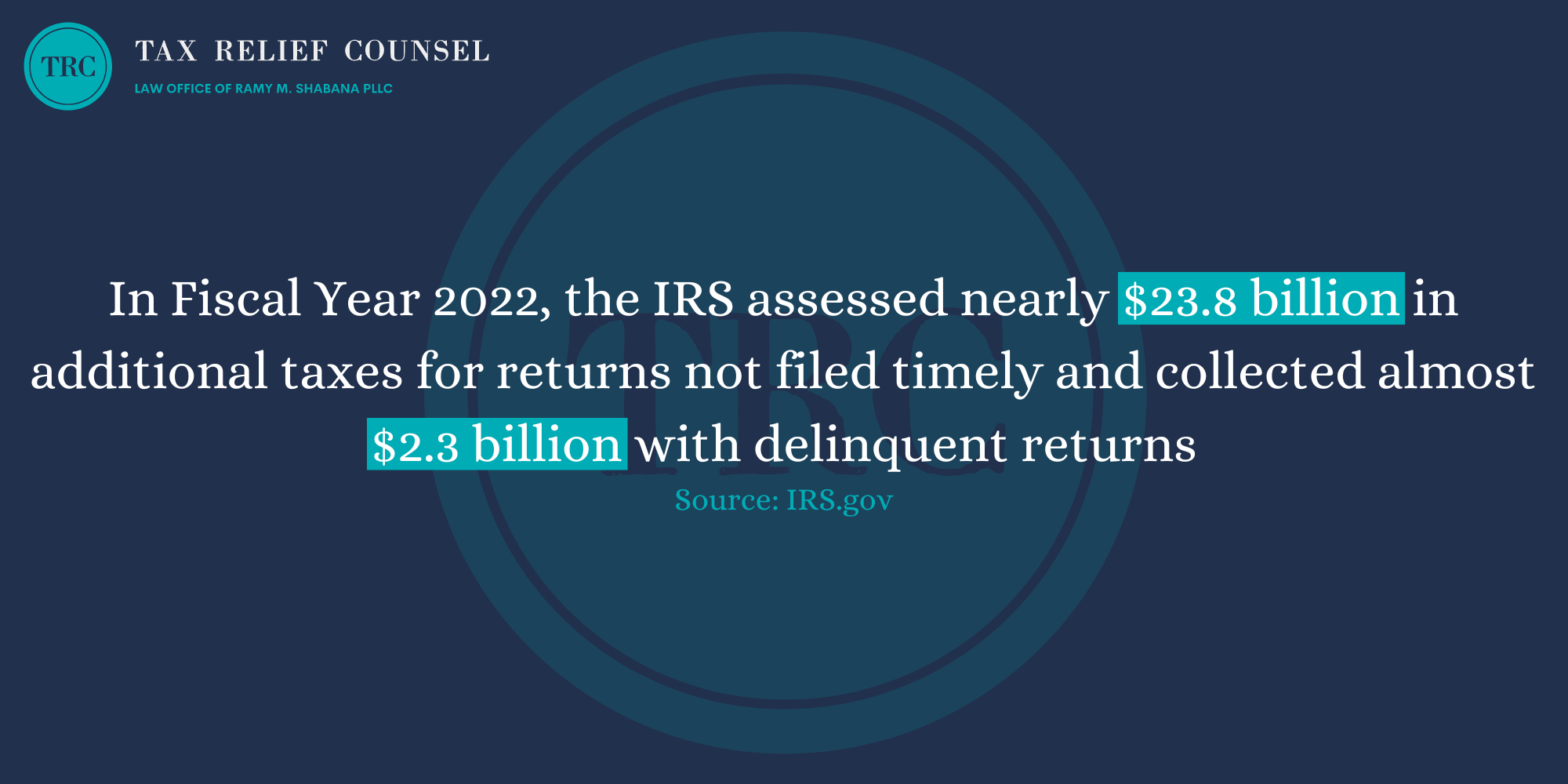Tax Relief Counsel:
IRS Collection Lawyer
The dedicated tax law professionals at Tax Relief Counsel can protect you from unjust IRS actions, resolve your tax issues, and restore your peace of mind. Don’t face your tax burdens alone — retain the services of a qualified tax attorney to improve your chances of a satisfactory resolution.
Trusted Tax Collection Attorney in Washington, D.C.

Failure to pay taxes owed when submitting a return may lead to your account being referred to collections by the IRS, resulting in a letter specifying the amount of overdue taxes.
If the IRS has taken action to collect unpaid taxes from you, it’s important to seek the help of an IRS collections lawyer. An attorney will have the education, experience, and negotiation skills needed to handle your case.
Ramy Shabana, an experienced tax attorney and founder of Tax Relief Counsel, can assist you with numerous tax-related matters, including audits, appeals, and offshore disclosures.
Our team is ready to protect your assets and develop a debt-payment plan that works for you. In some cases, we may be able to reduce your debt or negotiate less severe penalties. Contact us now to set up your free virtual consultation.
Common Tax Collection Methods

The IRS uses various means to collect unpaid tax debts. Here are some of their most common tax collection methods:
- Tax Liens: When the IRS files a federal tax lien, it places a legal claim on your property and assets that can affect your ability to sell, refinance, or use your assets as collateral.
- Tax Levies: The agency can also issue levies to seize your assets or property to satisfy unpaid tax debts.
- Notice of Federal Tax Lien (NFTL): Upon filing a Notice of Federal Tax Lien, the IRS will notify you of the lien’s existence; this is a matter of public record that can negatively impact your credit.
- Bank Levies: Tax authorities can freeze and seize funds from your bank account to cover unpaid tax liabilities.
- Wage Garnishments: The IRS may direct your employer to withhold a portion of your wages and send it directly to cover your tax debt.
- Seizure of Assets: In extreme cases, the IRS can seize and sell your physical assets, including real estate and vehicles, to satisfy your tax debts.
- Asset Forfeiture: Forfeiture entails the permanent loss of one’s rights to their assets, including cash, vehicles, or real estate, in cases involving illegal activity or tax evasion.
- Federal Payment Levy Program (FPLP): The IRS can intercept federal payments owed to you, like tax refunds or specific federal benefit payments, to offset outstanding tax debts.
It’s possible for the IRS to use a combination of these tactics to secure your outstanding tax payment.
Potential Solutions to Resolve IRS Collections

Facing the prospect of collections can be stressful. Fortunately, there are several solutions available to resolve your tax debt and help you regain financial stability. Here are a few options.
Installment Plans
If you’re facing significant outstanding liability, you can negotiate a monthly payment plan with the IRS that allows you to repay your debt gradually.
Offer in Compromise (OIC)
Provided you meet the eligibility criteria, an offer in compromise may allow you to settle your tax debt for less than the full amount you owe.
Currently Not Collectible Status (CNC)
If you’re facing financial hardship and can prove your inability to pay your debts, you may be granted “currently not collectible” status. In this scenario, the IRS would temporarily halt collection action against you.
It’s important to note that CNC status doesn’t prevent interest from accruing on your debt and that the IRS can still garnish your tax refunds while you’re in CNC status.
Appeals and Disputes
If you believe there are errors or discrepancies in your tax assessment, you can challenge the IRS’s decision through appeals or disputes with the aid of a tax attorney.
Innocent Spouse Relief
If you’re married, there’s a chance that you could be held responsible for tax debt you didn’t accrue yourself. A qualified tax lawyer may be able to assist you in obtaining innocent spouse relief.
Injured Spouse Relief
If you filed a joint tax return and your spouse used your portion of the refund to cover their past-due taxes, you may qualify for injured spouse relief. A successful bid will allow you to recover your portion of the refund or prevent your assets from being seized.
Bankruptcy
In some cases, bankruptcy may be a viable option to discharge or restructure unmanageable tax debt.
Collection Due Process (CDP) Hearings
As a taxpayer, you also have the option of requesting a CDP hearing to challenge IRS collection actions and propose alternative solutions.
The Statute of Limitations on Tax Collections

The IRS can only collect unpaid taxes for a limited time, usually 10 years from the assessment date. However, there are certain rules and exceptions that can prolong this timeframe, which can be confusing. An experienced tax attorney can help you understand the complexities of IRS rules and make sure you stay compliant.
Dealing with collection actions can be frustrating, but with professional guidance and the right approach, solutions are within reach.
Tax Relief Counsel is here to aid you in resolving your tax debt woes. Contact us today to explore your options and take control of your situation.
Don't Let IRS Collections Control Your Life
Tax troubles can be overwhelming, but they don’t have to be. Contact Tax Relief Counsel today for personalized solutions to end IRS collection actions and preserve financial stability.
Call Me Personally
Claim Your Free Virtual Consultation
Tax Relief Counsel is available 24/7 to assist you with your tax-related needs. Contact us anytime for help regarding your case.
Call Me Personally
How Our Tax Lawyer Can Help You
Tax Relief Counsel is committed to effectively helping clients deal with IRS collection efforts. Here’s how we can assist you.
Strategic Negotiations
Attorney Ramy Shabana is well-versed in state and federal tax laws and IRS collections procedures. He can employ strategic negotiation techniques to work out favorable arrangements, such as installment plans, settlements, or compromise agreements.
Tax Appeals and Litigation
If disputes arise, Ramy can represent you in the U.S. Tax Court for litigation or appeals, presenting a strong case and advocating for a fair resolution.
Reduced Penalties
Our team may be able to provide penalty abatement options aimed at reducing or eliminating certain penalties assessed by the IRS and making your tax debt more manageable.

Why Choose
Tax Relief Counsel?
Our clients value us for our unmatched legal acumen, capable strategies, and commitment to exceptional client service. Here are some of the advantages you gain when you work with Tax Relief Counsel.
Proven Experience
You’ll benefit from our team’s extensive IRS collections experience, which allows us to provide solutions tailored to your specific needs.
Comprehensive Support
We’ll address every aspect of your tax debt and surrounding financial circumstances, offering both immediate and long-term solutions.
Worldwide Assistance
We can help you with your tax-related concerns no matter where you’re located, thanks to our remote accessibility and rapid response times.
Direct Communication
You’ll get the chance to speak directly with Ramy Shabana, our veteran tax attorney, for prompt action and personalized support.
FAQs
What are the common forms and timelines associated with IRS collections?
When the IRS initiates collection actions against you, you might encounter one or more of the following forms.
CP14
This is one of the first notices you’ll receive when you have a balance due on your account after the IRS processes your tax return. It informs you of the amount you owe in taxes, penalties, and interest.
CP501
This is a reminder notice that you still have a balance due on your tax account. It’s typically sent about five weeks after the CP14 if you haven’t paid or contacted the IRS.
CP503
If your balance remains unpaid, the agency will send a CP503 notice as a second reminder. This form usually arrives about five weeks after the CP501.
CP504
This notice is more urgent. It indicates that the IRS intends to levy certain assets, such as state tax refunds. You can expect to receive a CP504 if you don’t respond to the agency’s previous notices.
Letter 1058
This letter is sent if you don’t pay your balance or make arrangements to pay. It’s a legal notice giving you 30 days to pay or contact the IRS before they start levying your assets or garnishing your wages. It also informs you of your right to request a CDP hearing.
Letter 11
Like Letter 1058, Letter 11 is also a Final Notice of Intent to Levy, but it’s used under different procedural circumstances.
CP90/CP297
This notice is similar to Letter 1058. It informs you of the IRS’s intent to levy your assets, as well as your right to a hearing.
CP91/CP298
This notice specifically indicates the agency’s intent to levy your Social Security benefits.
CP523
You’ll receive this notice if you have an installment agreement with the IRS and miss a payment. It provides a warning that your agreement may be terminated.
If you receive any of these letters, don’t hesitate to contact us for a free consultation to plan your next steps.
Have Questions?
Get a No-Cost Case Review!
Your financial well-being matters to us. Schedule a no-obligation case review today to discuss your situation and find the best way forward.

